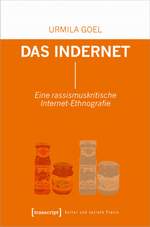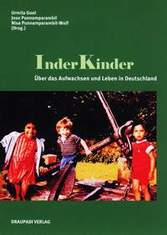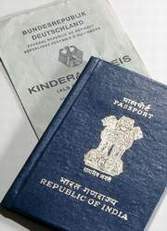Dienstag, 26. Dezember 2006
Look out!
urmila, 12:08h

Apex Lookout, Armidale, NSW, Australia
0 Kommentare in: english ... comment ... link
Freitag, 22. Dezember 2006
White Crhistmas
urmila, 04:02h
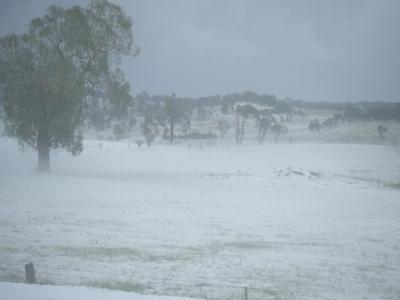
... and I had believed that Santa Claus in the snow was an eurocentric image.
The 'Australians', however, also were not really prepared for hail in the middle of summer:
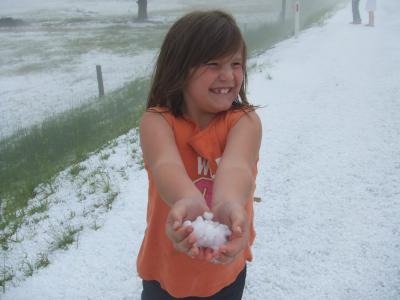
Her brother had told me that he had seen snow before. On tv.
0 Kommentare in: english ... comment ... link
Montag, 18. Dezember 2006
Tamworth
urmila, 08:06h
The council of Tamworth has decided not to offer refuge to a few Sudanese families. For the racist arguments behind the decision see Australian city rejects Sudanese refugees and Sudanese families welcome in Canberra: Stanhope.
0 Kommentare in: english ... comment ... link
Donnerstag, 14. Dezember 2006
'Race'
urmila, 11:22h
In critical discourse it is absolutely clear that 'race' is no natural category. It is socially constructed in order to secure the hegemonial power of those who consider themselves 'white'. It is also clear that while 'race' does not exist, racism does exist and has real consequences for those marked in racist discourses. Thus one has to deal with the constructions of 'race' and the racialisation of people.
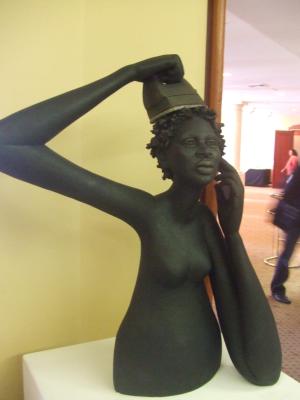
Having German as a my first language, a language in which the equivalent of 'race' is tabooed, I am always very much irritated that English speakers without hesitation use the term 'race' and 'racial' (and it seems without the inverted commas). Even at critical conferences like Borderpolitics of Whiteness.
I had some discussions there about this. One guy seemed to equate 'race' and 'culture' but could not explain to me, why he then uses the racist term 'race' and not culture. Another woman agreed with my irritation and said it was probably a matter of laziness.
My question is: Why use a term which is founded in racist discourses and when used raises the association of biological differences of people? Why not stop speaking of 'race' and 'racial' and instead focus on racialisation and racist marking of people?

Having German as a my first language, a language in which the equivalent of 'race' is tabooed, I am always very much irritated that English speakers without hesitation use the term 'race' and 'racial' (and it seems without the inverted commas). Even at critical conferences like Borderpolitics of Whiteness.
I had some discussions there about this. One guy seemed to equate 'race' and 'culture' but could not explain to me, why he then uses the racist term 'race' and not culture. Another woman agreed with my irritation and said it was probably a matter of laziness.
My question is: Why use a term which is founded in racist discourses and when used raises the association of biological differences of people? Why not stop speaking of 'race' and 'racial' and instead focus on racialisation and racist marking of people?
0 Kommentare in: english ... comment ... link
Freitag, 1. Dezember 2006
"I'm a poet, I'm a feminist, and I'm Muslim"
urmila, 14:17h
The interview with Pakistani poet Kyla Pasha is now online also in the English original.
0 Kommentare in: english ... comment ... link
Donnerstag, 2. November 2006
Racist advertisement
urmila, 12:50h
0 Kommentare in: english ... comment ... link
Donnerstag, 5. Oktober 2006
Australia from a 'German' perspective
urmila, 06:11h
The thing I am struggling most with here is this very effective imagination of a 'White Australia', where there is room for the indigenous people only on the margin and where new migration is considered a problem. Sure the racism here is nothing special, we have got that in Germany as well. But what I find so interesting here is that for me as an outsider the 'White' imagination seems so obviously absurd.
Some of my German posts on the topic should be understandable also for English-readers: And then there is also an 'Australian' perspective on Germany.
Some of my German posts on the topic should be understandable also for English-readers: And then there is also an 'Australian' perspective on Germany.
0 Kommentare in: english ... comment ... link
Writing in German
urmila, 06:06h
Since two weeks I am in Australia, speaking English, hearing English. One could think this would be an opportunity to write more English in my blog again. But it is rather the opposite. I am still so new here that I perceive everything very much from a 'German' perspective and thus have to comment on it also in German. It just would not make the same sense in English.
0 Kommentare in: english ... comment ... link
Montag, 21. August 2006
Flying Racism
urmila, 17:36h
Two 'Asians' wanted to fly from Malaga to Manchester. Like many others. But they were (constructed as) different. They (were considered to) look different. And they were heard to speak a 'foreign' language, probably 'Arabic' (who knows why the others thought so). Certainly they must be dangerous (after all these constructions). And thus the other passengers refused to fly with them. The two innocent men were forcefully removed from the plane.
More on this racist act in the Daily Mail.
This is the outcome from constructing and blaming the 'other'. Racism gains more and more space. (And terrorism is definitely not prevented doing so.)
25.08.06:: Another story this time on BBC:
"We have protested and expressed shock about the incident. There was treatment that was objectionable."
Mr Sarna said the Dutch government had told India there was no intention of racial discrimination.
22.11.06: Kyla has commented the newest case.
More on this racist act in the Daily Mail.
This is the outcome from constructing and blaming the 'other'. Racism gains more and more space. (And terrorism is definitely not prevented doing so.)
25.08.06:: Another story this time on BBC:
"We have protested and expressed shock about the incident. There was treatment that was objectionable."
Mr Sarna said the Dutch government had told India there was no intention of racial discrimination.
22.11.06: Kyla has commented the newest case.
0 Kommentare in: english ... comment ... link
Montag, 14. August 2006
'Pakistani terror'
urmila, 18:09h
The terror alarm of last week has shook 'Europe'. That young men, who were born and raised in a 'European' country and have its nationlity are suspeceted of terrorism seems to be both a big surprise and a big threat. The 'Pakistanis' are dangereous, they are 'Muslims', they are potential terrorists and 'we' have to deal with this danger.
In (at least) one 'German' newspaper the commentator reffered to the Rushdie affair and that one could see already then that Great Britain had a problem with 'radical Muslims'. In comment to this a quote from Zadie Smith's (2000) "White Teeth":
"To be more precise, Millat hadn't read it. Millat knew nothing about the writer, nothing about the book; could not identify the book if it lay in a pile of other books; could not pick out the writer in a line-up of other writers ... But he knew other things. He knew that he, Millat, was a Paki no matter where he came from, that he smelt of curry; had no sexual identity; took other people's jobs; or had no job and bummed off the state; or gave all the jobs to his relatives; that he could be a dentist or a shop-owner or a curry-shifter, but no footballer or a film-maker; that he should go back to his own country; or stay here and earn his bloody keep; that he worshipped elephants and wore turbans; that no one who looked like Millat, or felt like Millat, was ever on the news unless they had recently been murdered. In short, he knew he had no face in this country, no voice in the country, until the week before last when suddenly people like Millat were on every channel and every radio and every newspaper and they were angry, and Millat recognized the anger, thought it recognized him, and grabbed it with both hands."
In (at least) one 'German' newspaper the commentator reffered to the Rushdie affair and that one could see already then that Great Britain had a problem with 'radical Muslims'. In comment to this a quote from Zadie Smith's (2000) "White Teeth":
"To be more precise, Millat hadn't read it. Millat knew nothing about the writer, nothing about the book; could not identify the book if it lay in a pile of other books; could not pick out the writer in a line-up of other writers ... But he knew other things. He knew that he, Millat, was a Paki no matter where he came from, that he smelt of curry; had no sexual identity; took other people's jobs; or had no job and bummed off the state; or gave all the jobs to his relatives; that he could be a dentist or a shop-owner or a curry-shifter, but no footballer or a film-maker; that he should go back to his own country; or stay here and earn his bloody keep; that he worshipped elephants and wore turbans; that no one who looked like Millat, or felt like Millat, was ever on the news unless they had recently been murdered. In short, he knew he had no face in this country, no voice in the country, until the week before last when suddenly people like Millat were on every channel and every radio and every newspaper and they were angry, and Millat recognized the anger, thought it recognized him, and grabbed it with both hands."
0 Kommentare in: english ... comment ... link
... nächste Seite
 Foto: © Anke Illing
Foto: © Anke Illing